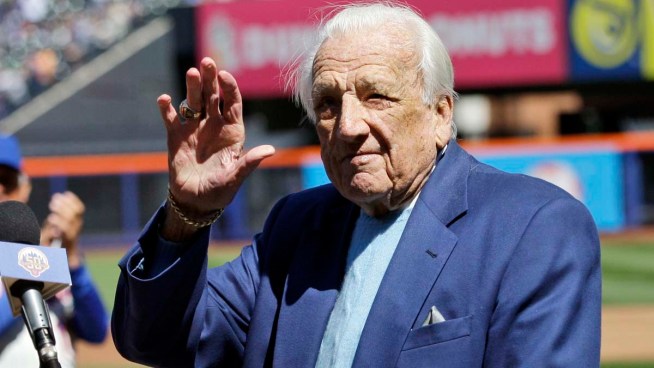The baseball Hall of Fame said Kiner died at his home in Rancho Mirage with his family at his side.
Kiner hit 369 home runs during his 10-year career, mostly with the Pittsburgh Pirates. He made his debut in 1946 and his power quickly became the talk of baseball — he won or tied for the National League lead in homers in each of his first seven seasons.
When he retired, Kiner was sixth on the career home run list. Several years later, he joined the broadcast crew of the New York Mets for their expansion season in 1962 and became a permanent fixture — the home TV booth at Shea Stadium was named in his honor.
"Kiner's Korner" was a delight for players and fans alike, where stars would join Kiner for postgame chats. Known for malaprops — he once even forgot his own name on air — he took the occasional slips in stride.
Kiner had a stroke about a decade ago but remained an occasional part of the Mets' announcing crew. He worked a handful of games last season, his 52th year of calling their games.
"As one of baseball's most prolific power hitters for a decade, Ralph struck fear into the hearts of the best pitchers of baseball's Golden Era despite his easygoing nature, disarming humility and movie-star smile," Hall President Jeff Idelson said in a statement.
"His engaging personality and profound knowledge of the game turned him into a living room companion for millions of New York Mets fans who adored his game broadcasts and later 'Kiner's Korner' for more than half a century," he said. "He was as comfortable hanging out in Palm Springs with his friend Bob Hope as he was hitting in front of Hank Greenberg at Forbes Field."
I saw him play a number of times in Cincinnati when he was with the Pirates or the Cubs. He graces my list of true "professionals." His professional life and his personal life, I think, were exemplary. We will not see his kind come down the road ..... very often.

